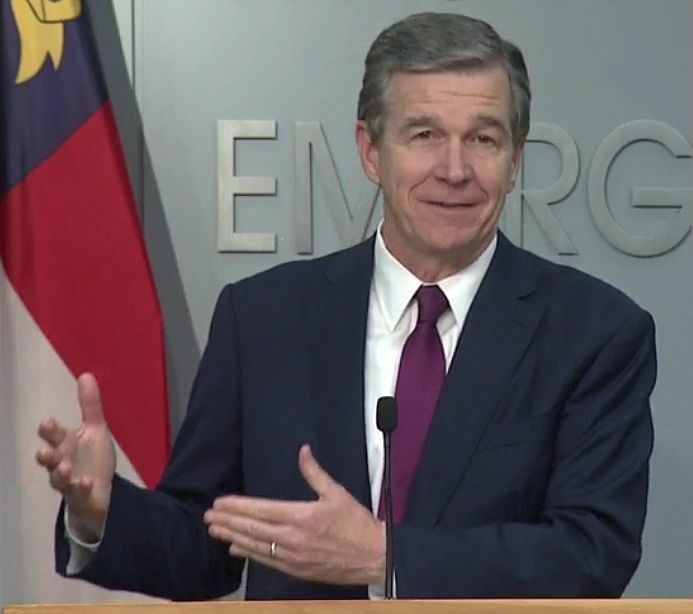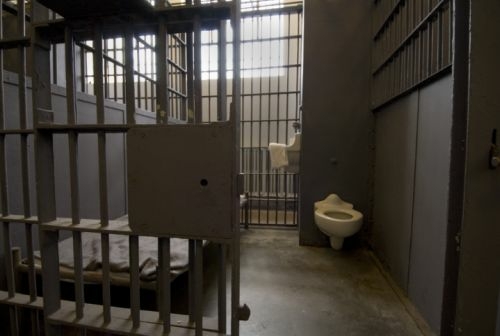Notable prison system appropriations in the governor’s budget


Gov. Roy Cooper released his budget last week, offering raises to teachers, increasing appropriations for the Department of Environmental Quality and funding the comprehensive remedial plan in the long-running Leandro school funding lawsuit.
It also includes a substantial allocation of state dollars to pay for the new Department of Adult Correction, responsible for overseeing the roughly 30,000 people in the state’s 53 prisons and the 77,000 people on probation, parole or some other form of post-release supervision.
Governors’ budgets are mere suggestions, a policy statement more than an actual accounting of exactly how North Carolina will spend its money.
The legislature, which is controlled by Republicans, writes and approves the state budget. Cooper, a Democrat, will need to negotiate with budget leaders to have his priorities funded, but he enters this budget season with less leverage than in prior years, thanks to gains Republicans made in last year’s midterm elections.
Here are some of the highlights in Cooper’s budget relating to the Department of Adult Correction.
Re-entry efforts to help people coming home from prison
More than 40% of people who left prison or entered probation during the 2018 to 2018 Fiscal Year were rearrested at some point over those two years.
Cooper proposed $5,000,000 in recurring funds to supplement Pell Grant funding so that incarcerated people can complete higher education programs. Todd Ishee, the secretary for the Department of Adult Correction, told legislators earlier this session that education plays a critical role in helping ensure those who leave prison don’t come back someday.
The governor also would appropriate $10,000,000 to expand evidence-based rehabilitative programming within the state’s prisons. The money would go toward programs like “Moral Recognition Therapy” and “Thinking for a Change,” which staffers at the Office of the State Budget and Management wrote “have been proven to reduce recidivism amongst FTE participants, protecting public safety.”
Cooper also suggested allocating $1,500,000 in recurring money to increase funding for a program that provides short-term transitional housing to people leaving prison.
Pay raises for corrections staff
Staffing vacancies plague the department, which has a 28% vacancy rate. Cooper’s budget provides for a 5% raise for all employees in 2023-2024 fiscal year — some staffers would get an additional 1.5% increase — and a 3% increase for everyone in the 2024-2025 fiscal year. Cooper also suggested a modest retention bonus to incentivize corrections staff to remain on the job.
The governor also suggesting putting money toward employee education, further incentivizing staff to stay on. The $100,000 recurring money would go toward helping employees pay for their tuition.
Cooper’s budget acknowledges the agency’s high vacancy and turnover rates, and advocates setting aside $1,000,000 to recruit prospective employees to address “difficult-to-fill positions.”
Prison funding
The budget includes a $15,000,000 non-recurring cost for “prison life and safety improvements,” money for things like lights in prison cells, upgrading kitchens and paying for emergency release locking systems. The current systems are either at the end of their life cycles or not up to industry standards, the proposal reads, and improving them makes it safer for incarcerated people and staff alike.
Speaking of industry standards, the budget proposes paying $1,000,000 to complete the American Correctional Association accreditation process and audit of 15 prisons. Six prisons have already earned accreditation from the association, which Ishee had been planning to lead before Cooper nominated him to head the Department of Adult Correction.
Cooper also suggested paying $8,000,000 to install radio technology with panic buttons in prisons across the state, an effort to make correctional facilities safer, and $4,500,000 to assess prisons across North Carolina so the agency knows where to prioritize repairs and updates to aging prisons worn down by time or natural disasters.
Click here to read other highlights from Cooper’s budget on funding for other criminal justice initiatives. Here is a link to the governor’s proposed budget.








